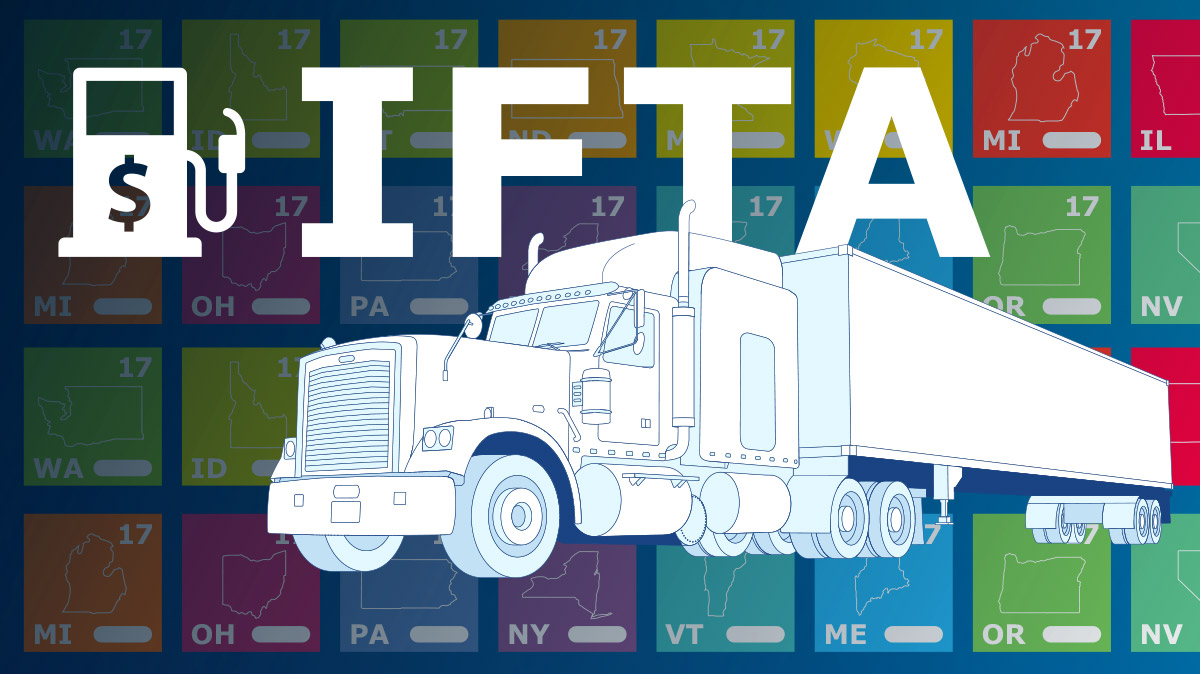The International Fuel Tax Agreement (IFTA) is an agreement between the states of the United States and the provinces of Canada. Taxes are paid on fuel, and IFTA allows commercial road carriers to register in one state and pay these tax contributions to all participating regions according to their share.
The IFTA was created for truckers who often cross state lines on their routes. This simplifies the accounting and payment of taxes on fuel and saves trucking companies from paperwork.
Why was the IFTA program created?
Fuel taxes are set by each state or province and are payable at the time of purchase. Commercial trucking has permits that dictate a set rate of tax on motor fuel. Their payments are recorded so that the taxable amount can be calculated and adjusted on a quarterly basis.
Prior to the IFTA program, drivers had to obtain a permit for each state or province they crossed at a designated port of entry. Obtaining a number of permits and maintaining quarterly reports added significant hassle for carriers.
In the 1980s, some states entered into agreements to create a joint revenue sharing program and eliminate the permit requirement for individual fuel tax permits. Years later, this program has evolved into the IFTA today.
How does IFTA work?
Under this program, the truck is registered with the IFTA and receives a fuel tax clearance from one state. When a vehicle passes through any participating state or province, tax on fuel purchased there is credited to the permit holder’s account. At the end of the quarter, a fuel tax report is generated showing fuel miles and gallons driven for each region.
IFTA helps calculate the amount of tax or tax credit due for each state, determine the tax liability for each state, and control the allocation of funds accordingly.
IFTA qualification
Commercial vehicles are IFTA qualified. In particular, these are commercial vehicles with three or more axles or two axles and with a gross weight of more than 26,000 pounds used for the transport of goods or passengers.
To comply with IFTA requirements, these vehicles are operated in at least two US states and/or Canadian provinces that are parties to the International Fuel Tax Agreement.
All 10 Canadian provinces are parties to the agreement, as are all 48 contiguous US states. Alaska and Hawaii are not members. Private vehicles or vehicles for personal use are not subject to IFTA licensing.
Registration with IFTA
The state in which the vehicle is registered is considered the home state of the vehicle. If the vehicle is registered in multiple states, the operator must contact the State Department of Transportation to determine if the vehicle can be combined under one license.
The state issues an IFTA vehicle sticker. For registration, a list of State Department of Transportation websites is available online at the Federal Highway Administration.
Submission of reports to IFTA
To file an IFTA claim at the end of the fiscal quarter, the licensee submits a fuel tax statement listing miles driven in all participating jurisdictions and gallons of fuel purchased there. Supporting documents include a vehicle mileage record, distance traveled records, fuel records, and receipts for tax-paid retail fuel purchases. All relevant data, such as gap miles and fuel receipts, must be included when submitting an IFTA.
